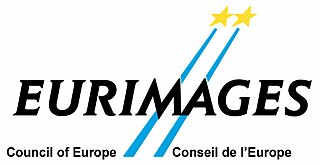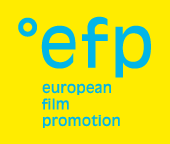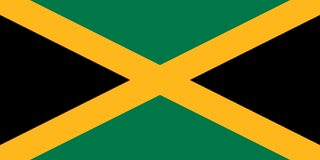
'The Austrian Film Commission (AFC), founded in 1987, is an organisation dedicated to promoting Austrian cinema throughout the world.

'The Austrian Film Commission (AFC), founded in 1987, is an organisation dedicated to promoting Austrian cinema throughout the world.
The AFC's role is to increase awareness of Austrian film making abroad and to support the positioning and release of Austrian films on the international marketplace.
Acting both as an information clearing house and as a facilitating agency for export purposes, the AFC maintains ongoing contacts with festival directors, sales agents, buyers and distributors, as well as the press, concerning new Austrian productions. Offering a wide variety of services at the domestic and international level, the AFC consults with producers and creative artists attending international festivals and markets and supports their activities.
The AFC represents Austria in the network of European film organisations for the worldwide advertisement of European film, the European Film Promotion.
The AFC represents the Austrian film industry at all important festivals and markets, principally the Cannes Film Festival, Berlin International Film Festival, Venice Film Festival, Toronto International Film Festival, San Sebastián International Film Festival, International Film Festival Rotterdam, Locarno International Film Festival, Karlovy Vary International Film Festival, Pusan International Film Festival, Buenos Aires International Festival of Independent Cinema and the American Film Market in Los Angeles.
The AFC produces a number of publications:
The AFC website provides news on current Austrian filmmaking and interviews, a film database, addresses and data on the Austrian film industry and a comprehensive list of the festival participations of Austrian films since 2006.
The first Diagonale film festivals in Salzburg (1993 to 1995) were organised by the Austrian Film Commission.
Martin Schweighofer has been the director of the Austrian Film Commission since 1992.

A film festival is an organized, extended presentation of films in one or more cinemas or screening venues, usually in a single city or region. Increasingly, film festivals show some films outdoors.

The New Zealand Film Commission is a New Zealand government agency formed to assist with creating and promoting New Zealand films. It was established under the New Zealand Film Commission Act 1978.

The Panafrican Film and Television Festival of Ouagadougou is a film festival in Burkina Faso, held biennially in Ouagadougou, where the organization is based. It accepts for competition only films by African filmmakers and chiefly produced in Africa. FESPACO is scheduled in March every second year, two weeks after the last Saturday of February. Its opening night is held in the Stade du 4-Août, the national stadium.

Sheffield DocFest is an international documentary festival and industry marketplace held annually in Sheffield, England.

Eurimages is a cultural support fund of the Council of Europe, established in 1989. Eurimages promotes independent filmmaking by providing financial support to feature-length fiction, animation, and documentary films. In doing so, it encourages co-operation between professionals across Europe. Eurimages is headquartered in Strasbourg, France in the Agora building of the Council of Europe. The current Chairperson is Catherine Trautmann.
The Hot Docs Canadian International Documentary Festival is the largest documentary festival in North America. The event takes place annually in Toronto, Ontario, Canada. The 27th edition of the festival took place online throughout May and June 2020. In addition to the annual festival, Hot Docs owns and operates the Hot Docs Ted Rogers Cinema, administers multiple production funds, and runs year-round screening programs including Doc Soup and Hot Docs Showcase.

The Australian Film Commission (AFC) was an Australian government agency was founded in 1975 with a mandate to promote the creation and distribution of films in Australia as well as to preserve the country's film history. It also had a production arm responsible for production and commissioning of films for the government. It was superseded by Screen Australia from 1 July 2008.

Cinema of Austria refers to the film industry based in Austria. Austria has had an active cinema industry since the early 20th century when it was the Austro-Hungarian Empire, and that has continued to the present day. Producer Sascha Kolowrat-Krakowsky, producer-director-writer Luise Kolm and the Austro-Hungarian directors Michael Curtiz and Alexander Korda were among the pioneers of early Austrian cinema. Several Austrian directors pursued careers in Weimar Germany and later in the United States, among them Fritz Lang, G. W. Pabst, Josef von Sternberg, Billy Wilder, Fred Zinnemann, and Otto Preminger.

The Transilvania International Film Festival is the first international feature film festival in Romania, which is held annually in the historic capital of Transylvania, Cluj-Napoca. Founded in 2002 by the Romanian Film Promotion, TIFF has grown rapidly to become the most important film-related event in Romania. It is a member of the Alliance of Central and Eastern European Film Festivals (CentEast) and it is supported by the Creative Europe – MEDIA Programme. In February 2011, TIFF has been accredited by the FIAPF as a "competitive festival specialised on first and second feature films". Indiewire listed it as one of the world's top 50 leading film festivals.
Screen Australia is the Australian Federal Government's key funding body for the Australian screen production industry, created under the Screen Australia Act 2008. From 1 July 2008 Screen Australia took over the functions of its predecessor agencies the Australian Film Commission (AFC), the Film Finance Corporation Australia and Film Australia Limited.
Tallinn Black Nights Film Festival, or PÖFF, is an annual film festival held since 1997 in Tallinn, the capital city of Estonia. PÖFF is one of the largest film festivals in Northern Europe. In 2014 it was upgraded to an A-list festival by FIAPF.

European Film Promotion (EFP) is an organisation with a mission of promoting European films internationally. A network of 38 national film promotion institutes which represent films from their respective territories. Under the EFP flag, the members team up on initiatives to promote the diversity and the spirit of European cinema and talent at key international film festivals and markets.

Pacific Meridian is an International Film Festival of the Asian-Pacific region, which has been held every September since 2003 in Vladivostok, Russia. Every year it brings together filmmakers from about 108 countries; with more than 1200 films submitted each year.

The Film Development Council of the Philippines (FDCP) is the national film agency under the Office of the President of the Philippines responsible for film policies and programs to ensure the economic, cultural and educational development of the Philippine film industry. It aims to encourage the production of quality films and to conduct film-related events that enhance the skills of the Filipino talents. The agency also leads the film industry’s participation in domestic and foreign film markets, and local and international film festivals, and is tasked to preserve and protect films as part of the country’s national cultural heritage.
A growing number of film festivals are held in the Arab world to showcase films from the region as well as international standouts. In addition, institutions and organizations in other parts of the world are increasingly honoring the new generation of filmmakers in the Arab world with Arab film festivals.
The Beijing International Film Festival, abbreviated BJIFF, is a film festival in Beijing, China. Founded in 2011, along with the Shanghai International Film Festival, it is one of China's two biggest film festivals.

Creative UK is a not-for-profit organisation that supports the creative industries in the United Kingdom. The business promotes the development of creative companies, which in turn support business across games, film, creative and digital media as well as production services. The company works in partnership with the BFI, has offices in Bristol and Salford, and operates predominantly outside of the city of London.

Despite Jamaica never having a very strong film industry, the island has produced notable films from the 1970s onwards. The most critically acclaimed film is The Harder They Come (1972), by Perry Henzell, which received international acclaim. The Jamaican government and various private citizens have tried to promote the creation of new films by the creation of certain agencies such as the Jamaican Film Commission, and film festivals such as the Reggae Film Festival. The Harder They Come sparked trends that were apparent in following films such as Dancehall Queen and One Love, both directed by Don Letts and Rick Elgood.

Cinema in Qatar is a relatively young industry that evolved as part of the country’s plans to develop different local sectors with the aim of accumulating international recognition and status. Many major steps were taken to implement a long-term plan to develop the infrastructure as well as giving opportunities to local talents to have a platform that establishes their presence within the film industry with the support of the Doha Film Institute, and their various grants, workshops and festivals. The Qatar National Vision 2030 has three major pillars to development: human, social economic and environmental; this vision provides frameworks that enable the development of different elements within Qatar and its society; one of which is the high importance put on developing and cultivating artistic talents to represent and define Qatar on a global scale. Another important element in developing the movie industry is the influence and vision of Sheikha Al Mayassa who founded Doha Film Institution; the establishment of film as a mode of storytelling was imperative because it serves the purpose of granting Qatar a global presence through the talents that are supported and cultivated because of her initiative. The film industry plays a role in amplifying the Qatari national identity alongside the identity of the Arab world as a whole.

Cineuropa is an online information portal dedicated to the promotion of European cinema. It publishes daily news, reviews, interviews, and industry reports and maintains a database of information. It is available in four languages: English, French, Italian and Spanish. It is co-funded by the Creative Europe MEDIA Programme of the European Union. El País described Cineuropa as "an online media outlet that is very popular in the industry."